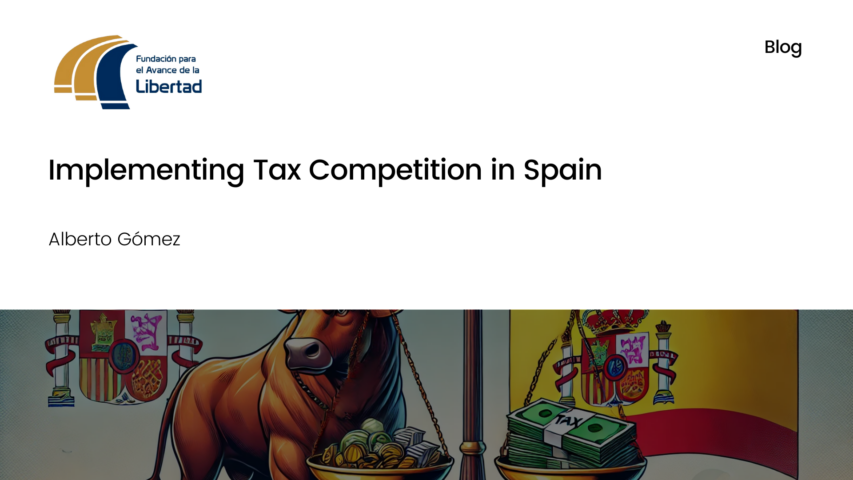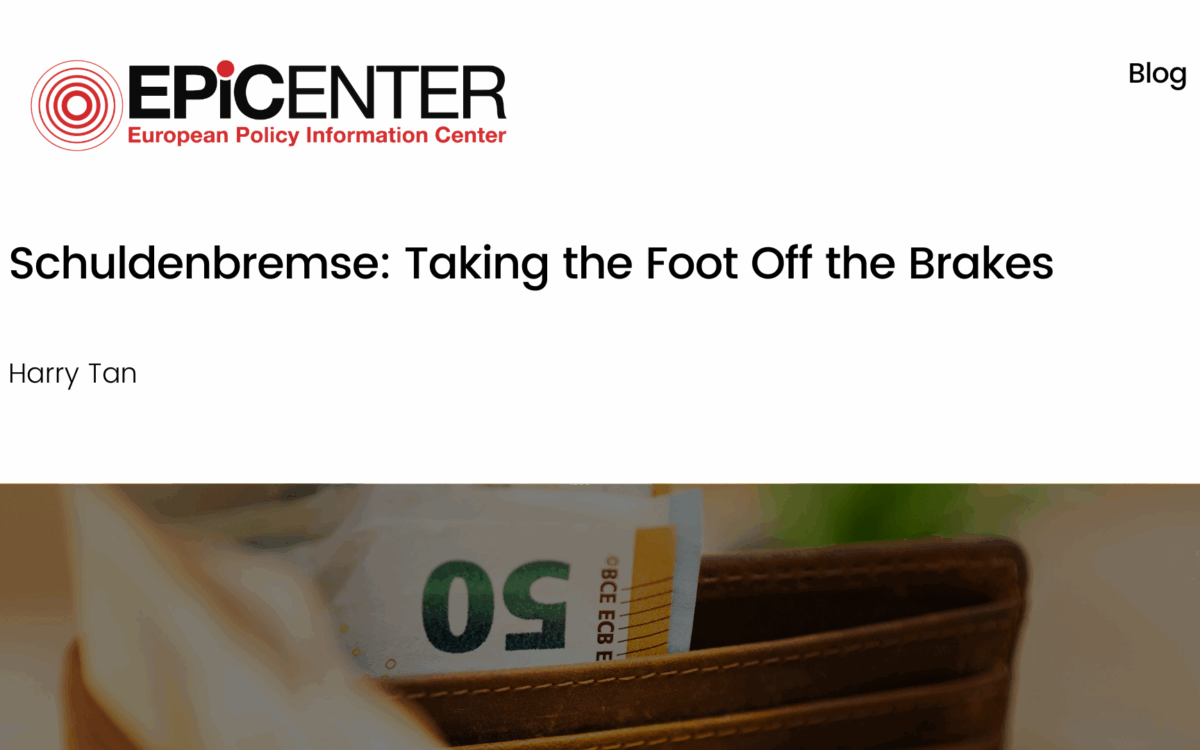Implementing Tax Competition in Spain

Implementing Tax Competition in Spain
Alberto Gomez // 21 August 2023
The elimination of the wealth tax by the Regional Government of Andalusia to attract high-income taxpayers triggered different reactions. Some autonomous communities (ACs) decided to follow Andalusia’s lead, such as Murcia, which announced the elimination of wealth tax in 2023, or the Community of Valencia, which has just approved a modest reduction in personal income tax for the lowest incomes. Other autonomous governments limited themselves to criticising the measure and requesting the intervention of the state to prevent what they consider to be unfair competition or ‘fiscal dumping’. The Spanish government criticised the elimination of this tax by the Andalusian government, alleging that it is a measure that only benefits wealthy taxpayers, and presented the misnamed ‘solidarity tax’ on large fortunes. All these facts are closely linked; to understand them, it is necessary to understand the context and how the ACs compete in tax matters.
The AC financing system presents a significant degree of decentralisation. The autonomous communities of the common regime (CCAA) have regulatory power over 50 per cent of personal income tax and 100 per cent of inheritance and gift taxes, property transfer taxes, wealth, documented legal acts, taxes on gambling, and others with high revenue-raising capacity. They also have a regional surcharge on the tax on hydrocarbons and the special tax on certain means of transport and have territorialised shares – without regulatory capacity – in 50 per cent of VAT, 58 per cent of the Special and Environmental taxes, and the tax on electricity. In addition, the autonomous regions have the capacity to create new taxes of their own.
Under the arrangements of this system, the governments of the autonomous regions can choose – within set limits – the combination of tax collection measures they deem appropriate to meet their expenditures. However, each AC’s fiscal decision has consequences for it and all the others. Autonomous governments, therefore, compete to provide the public services that their citizens demand in the most effective way possible, thus being able to offer a more favourable fiscal climate for their taxpayers. Herein lies the main advantage of fiscal decentralisation: In the medium/long term, no AC can fiscally plunder its taxpayers without providing public services or by providing them insufficiently. In doing so, taxpayers would migrate to regions with policies that better suit their preferences.
In the case at hand, when some ACs decide to lower their taxes, they attract citizens who prefer to pay even less in exchange for fewer or worse public services. These movements of taxpayers and companies occur at the expense of other autonomous regions, which will see some of their citizens leave. However, the same should happen the other way around. If some citizens were to prefer paying more taxes than they pay in their region in exchange for receiving a higher level of public services, they may leave for other autonomous regions with a higher tax burden. The fact that this does not happen reveals that, in general, citizens believe that taxes are too high and that they should be reduced while public services are managed more efficiently. That is why the communities with the lowest taxes are the ones that attract the most taxpayers and businesses, while others keep losing them.
However, our system is not as good as described, so what is its main problem? Undoubtedly, the lack of fiscal co-responsibility, that is, the lack of a perfect correspondence between the tax revenues collected by the ACs and the expenditures they make. The ACs have the capacity to decide on around a third of local autonomous community revenues, but they provide important state services such as public education and health. Thus, there is a significant mismatch between their revenue-raising capacity and their spending needs. Of all that the ACs collect, 75 per cent goes to the guarantee fund and is subsequently redistributed among all the ACs according to different criteria such as surface area, population, population dispersion, insularity, etc.
This peculiarity of the autonomous financing system generates perverse incentives for the management of autonomous governments. Although the autonomous governments and their citizens receive the benefits of increases in public spending, it is not the taxpayers/voters who bear the full costs of this, but the taxpayers of the whole country. Therefore, on occasion, autonomous governments allow themselves to spend beyond their means – generating huge deficits and increasing their public debt ratios – in order to win the support of their voters, knowing that the cost will be paid by others.
On the contrary, fiscal responsibility is something that the system discourages. If an autonomous region manages to efficiently provide the public services demanded by its citizens and generate a surplus, it will not be able to enjoy the benefits of this surplus since 75 per cent of it will go to the guarantee fund and be distributed among all the autonomous regions. This means that in the expectation of a surplus, the regional governments opt to oversize public spending instead of lowering taxes. In this way, the system encourages autonomous governments to reduce taxes and increase spending, generating growing deficits that will be paid by the rest of the autonomous regions.
How can this problem be solved? The answer is more decentralisation, responsible decentralisation, and fiscal co-responsibility. Autonomous regions should have the tax capacity to cope with the services they manage and, from there, they should be able to compete among themselves, always optimising physical revenues in relation to expenditures. The autonomous regions must spend according to what they receive, and not according to what the others may receive. Thus, when an autonomous government wants to spend more, it will have to impose the cost of this additional expenditure on its own citizens, with all that this entails. If the taxpayers deem it necessary, they will accept it willingly. If not, they will leave or elect another party to govern in the next election.
This article is a translated summary of the original article released by Fundalib. It has been translated by Mariana Restrepo Carvajal.
Download or share this blog post
EPICENTER publications and contributions from our member think tanks are designed to promote the discussion of economic issues and the role of markets in solving economic and social problems. As with all EPICENTER publications, the views expressed here are those of the author and not EPICENTER or its member think tanks (which have no corporate view).



